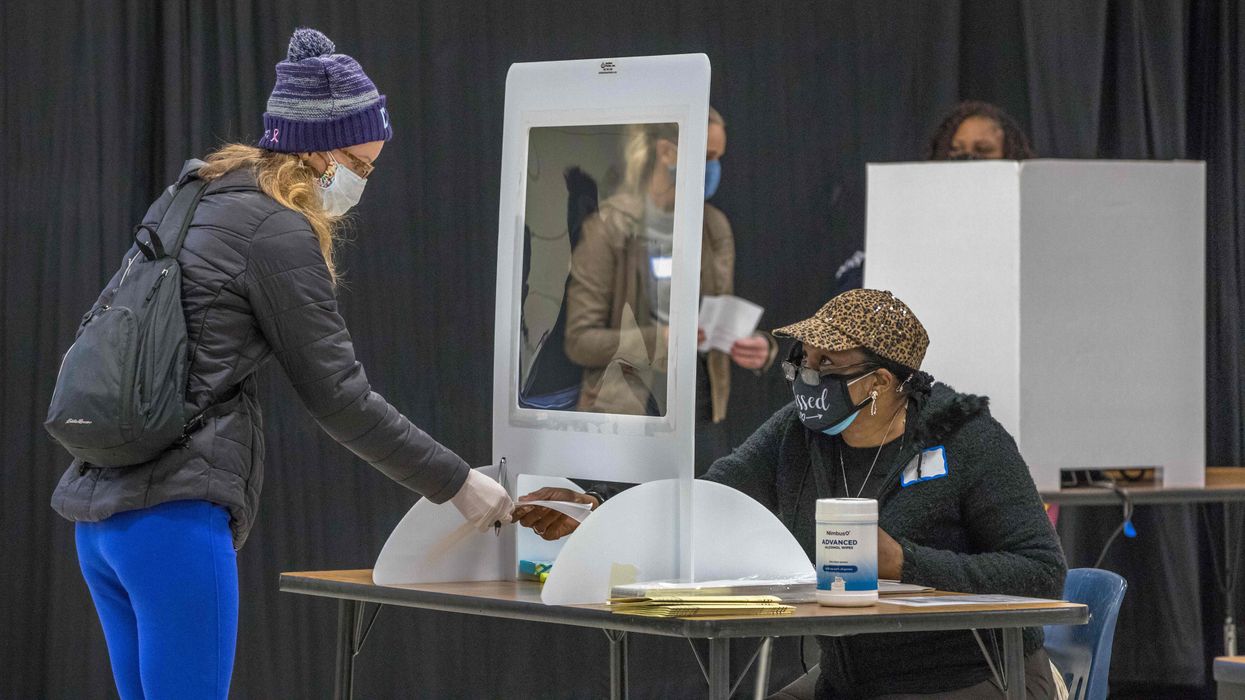North Carolina's strict new photo ID requirement for voters will remain in limbo for the foreseeable future, even though a federal appeals court has paved the way for it to take effect.
The state's history of racially discriminatory election laws is not enough to prevent the General Assembly from imposing new restrictions, a three-judge panel of the 4th Circuit Court of Appeals ruled unanimously Wednesday.
But the court continued to keep the 2018 law on the shelf during a certain appeal of its decision to the Supreme Court, alongside a separate challenge in state court. Both suits allege the 2018 measure would lead to the unconstitutional suppression of Black and poor voters.
Before the coronavirus pandemic and the surge in voting by mail made the 2020 election rules the most litigated in history, the byzantine battle over IDs in North Carolina was one of the most closely watched voting rights cases in the nation.
That's because of the state's robust record of discriminatory election rules. Shortly after the Supreme Court in 2013 struck down the heart of the Voting Rights Act, which required North Carolina and other states with similar histories to get federal approval for any changes to election rules, the Republicans in charge in Raleigh enacted several tough new curbs, including a photo ID requirement.
That law was blocked in 2016 by the 4th Circuit, which famously concluded it was written to "target African Americans with almost surgical precision."
Two years later, lawmakers asked voters to put a photo ID requirement in the state constitution and, after the referendum secured 55 percent support, the General Assembly wrote a new version of the law and enacted it over Democratic Gov. Roy Cooper's veto.
The NAACP and other civil rights groups then set about to block it in state and federal court. At the end of last year, federal Judge Loretta Biggs blocked the law from being implemented, agreeing with the plaintiffs' argument that its intent was rooted in racial discrimination.
The 4th Circuit disagreed, saying the judge had failed to give the General Assembly the legally required benefit of the doubt when considering the constitutionality of the law.
"A legislature's past acts do not condemn the acts of a later legislature, which we must presume acts in good faith," Judge Julius Richardson wrote for the panel, two nominated by President Trump and one by President Barack Obama. "The district court penalized the General Assembly because of who they were, instead of what they did."
Because of the litigation, the voter ID law was not in effect for this fall's election, when Trump carried the state and its 15 electoral votes by 1 percentage point and Republican Thom Tillis held onto his Senate seat by 2 points.
Seventeen other states also ask voters to show a photo ID in order to cast a ballot. Another 17 states have non-photo identification laws for voting.
North Carolina's law is considered among the strictest in the nation because it requires all would-be voters to arrive at their polling places with a driver's license, passport, student ID or other form of photo identification — or else they may only cast a provisional ballot that gets counted if they show up at the county elections board by the next day with the necessary ID. Supporters say this is reasonable, and accommodates poor people, because the law requires the state to provide access to free photo IDs.




















